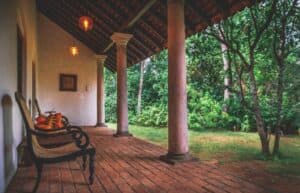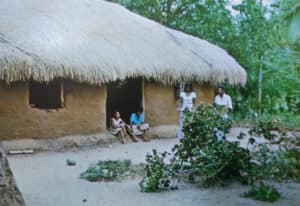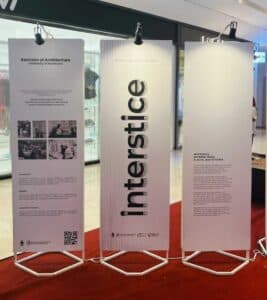How Traditional Sri Lankan Textiles Shape Modern Contemporary Interiors

Ceiling décor inspired by Sri Lankan batik textile patterns
Seamlessly connecting the island’s craft heritage with modern evolving contemporary design sensibilities, Sri Lankan textiles have stood in the forefront due to its adaptation abilities, transformative potential and aesthetic perceptions in the field of interior design.
Ranging from simple batik fabric décor seen in typical Sri Lankan homes, to digitalization of local ancient traditional art styles to appeal global markets; these motifs- often derived from culturally sacred fauna and flora, reflects the country’s uniquely charming artistic legacy and historical identity in a multitude of ways.

Batik fabric designs used as interior wall decoration
Before diving into the architectural and design significance of these fabrics, it is noteworthy to explore some of the key Sri Lankan traditional fabric types to better understand its artistry.
When it comes to local eccentric and unique patterns, the most common and popular is the Batik fabric designs, which use wax to create traditional patterns, before dyeing the fabrics with bold traditional colors. Often depicting existing and mythical icons from Sri Lankan folklore, batik designs are a salient but simple way of remembering the local traditional roots in modern times.

Process of creating batik patterns
Another major local fabric type is the Handloom fabric – which relies on the technique of using natural fibers such as cotton or silk on a traditional manual loom and are popular for their breathable yet rich and warm textural qualities.

Process of creating handloom fabric
Additionally traditional fabric styles include Palmyrah textiles, Beeralu lace and Dumbara weaving, which are perfected and continued through various communities scattered across the country.
In terms of reinterpretation of these fabrics into interior décor, pioneer architect Geoffrey Bawa played a significant role in bringing Sri Lankan traditional motifs to the spotlight- especially through his collaborations with artists including Ena de Siva in many of his projects. The two major methods of using fabric were to enhance the tactile notions through fabric textures, and to enhance the visual appearance through vibrant color pallets.

Traditional fabrics used as an additional textural layer in Bawa’s No. 11 house
Originally, traditional fabrics utilized bright, bold colors in their crafts which were found in their natural surroundings. Colors such as red, yellow, indigo were the most common, and they often encompassed various cultural meanings and were said to evoke different emotions based on their intensities. However nowadays, although these meanings might not be prominent; the colors still manage to evoke a sense of nostalgia within its beholders- proving the effectiveness of translating these symbolic colors and patterns into modern interior pallets.

Artist Ena de Silva’s colorful batik patterns displayed on the ceiling at Bawa’s Cinamon Bentota Beach Hotel
Presently, Sri Lankan traditional fabric crafts are also being used on a smaller scale, with incorporations as furniture pieces, curtains and as wall décor. Not only these serve as small reminders of the local craftsmanship and its remnants in our daily lives, but they also become a simple and functional memoir for tourists to take home.

Small scale décor with handloom textile in Barefoot Garden café Colombo
With the resurgence of handmade craftmanship and sustainable design being recognized on a global scale, Sri Lankan traditional symbols have too been affected by modern digitalization and modernization. However, there is still a large-scale demand for authentic, traditional art forms- thereby sustaining these vibrant local crafts.
It is imperative that these generational crafts be preserved in their original attributes, all the while be consciously optimized and evolved to raise awareness through future generations.
References:
https://dl.lib.uom.lk/server/api/core/bitstreams/6bd32a17-186b-4e12-95ba-b7ef46c30e20/content
https://somethingcurated.com/2024/10/02/how-geoffrey-bawa-reimagined-modernism-for-the-tropics/
https://www.worldofinteriors.com/story/geoffrey-bawa-number-11-colombo
https://pure.solent.ac.uk/ws/portalfiles/portal/17430089/Interiors_pp_203_226_Jones_.pdf
Related Posts

City of Dreams
October 22, 2025

“From Dream to Reality” – The Sri Lankan Building Process
October 8, 2025

Why Sri Lankans Love Verandahs
October 1, 2025

Why Old Sri Lankan Houses Always Felt Cooler?
September 10, 2025

Interstice – Where Architecture Meets the In-Between
September 3, 2025

Roofing Finishes for Sri Lanka
July 31, 2025
